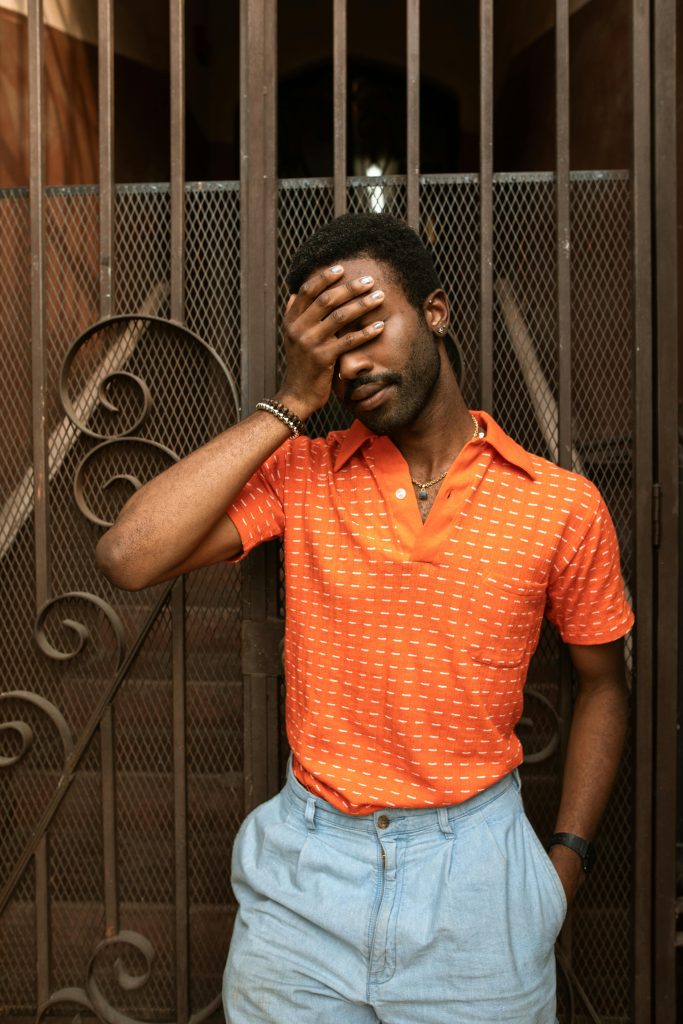Falling for someone who can’t—or won’t—meet your emotional needs can be one of the most painful patterns to repeat. Yet many people find themselves continually drawn to emotionally unavailable partners, even when the relationship leaves them feeling alone, confused, and unworthy.
Why does this happen? And more importantly, how can you break free?
Below are 10 clear signs you may be addicted to emotionally unavailable partners, backed by psychological research, examples, and tools to help you heal.
1. You Mistake Intensity for Intimacy
If your relationships often start with extreme passion and chemistry, but fizzle into silence or indifference, you might be chasing intensity, not true emotional closeness.
Example: You feel addicted to their attention when they text or open up, but deeply anxious when they pull away for days. This cycle keeps you emotionally hooked.
According to Dr. Stan Tatkin, couples therapist and author of Wired for Love, emotionally unavailable people often activate the anxious-avoidant trap—where one partner chases connection and the other retreats.
2. You Feel High When They Reach Out—and Crushed When They Don’t
This emotional rollercoaster resembles the cycle of addiction. The dopamine hit when they’re “present” becomes your reward, reinforcing the painful pattern.
Example: A single “I miss you” text after a week of silence makes you forget all the neglect you felt before.
This is called intermittent reinforcement, a powerful driver of behavioral addiction, according to research in Addictive Behaviors journal (2017).

3. You’re Always the One Initiating Contact or Making Plans
If you’re doing the emotional heavy lifting while they remain distant, it’s a clear sign of imbalance.
Example: You justify their lack of effort by telling yourself “they’re just busy” or “not good at expressing emotions.”
Truth: Healthy relationships involve mutual investment. One-sided pursuit often signals emotional unavailability on their part—and emotional hunger on yours.
4. You Stay Hoping They’ll Change
You hold onto potential rather than reality, clinging to the few times they opened up as proof that more is possible.
Example: Replaying that one deep conversation from three months ago as evidence they can connect—if only you’re patient enough.
What’s Happening: This is a form of emotional bargaining that keeps you stuck.
5. You Feel Anxious and Uncertain Most of the Time
When someone can’t provide emotional security, it leaves you overthinking everything—your worth, your value, and whether you’re “too much.”
Example: Rereading your texts, wondering if you were too needy or scared them off.
Psychologist Dr. Amir Levine in Attached explains that anxious attachment styles are often drawn to avoidant types, creating a self-perpetuating cycle.
6. Blame Yourself When They Pull Away
You assume you’re the problem. So you strive to become more likable, sexier, more understanding—anything to win back their attention.
Example: You say things like, “Maybe I should have given them more space,” instead of questioning why they ghosted you again.
Insight: Emotional unavailability is their wound, not your failure.
7. You’re Afraid of Partners Who Show Genuine Interest
Deep down, you feel bored or suspicious when someone is consistently available, kind, or open.
Example: You might say “he’s too nice” or “she’s too clingy” when someone is actually showing secure love.
Why This Happens: Familiar chaos can feel safer than unfamiliar stability—especially if emotional neglect was normalized in childhood (as shown in attachment studies by Bowlby and Ainsworth).
8. Excuse Their Behavior Based on Past Trauma
You empathize so deeply with their wounds that you ignore your own needs.
Example: “He went through a lot as a child,” becomes your reason for tolerating emotional stonewalling.
Reminder: Compassion should not cost you your peace. You can understand someone’s pain without absorbing it.

9. You Confuse Their Avoidance with Mysterious Allure
You interpret their aloofness as depth or complexity, thinking there’s more to uncover if only you try harder.
Example: You fantasize about the real them beneath the surface—but rarely get to see it.
Reality Check: Mystery isn’t always depth. Sometimes, it’s emotional detachment in disguise.
10. Feel Empty After Every Interaction
Rather than feeling nurtured, seen, or valued—you often feel drained, invisible, or dismissed.
Example: After spending time together, you ask yourself, Why do I feel lonelier than before?
The Truth: Real love should leave you feeling safe, not starved.
How to Break the Cycle
1. Identify Your Attachment Style
Are you anxiously attached? Understanding your patterns helps you recognize why you may chase people who avoid connection.
2. Reconnect With Your Own Needs
Ask: What does a safe, loving relationship look like for me? Write it down. Refer to it when you’re tempted by old patterns.
3. Practice Boundaries Without Guilt
Emotionally unavailable people often violate boundaries subtly. Start small: take time before responding. Say no without over-explaining.
4. Seek Secure Connections
Spend more time around people who are emotionally consistent—even in friendships. Let your nervous system adjust to steadiness.
5. Get Support from a Professional
Breaking this pattern often requires support. Therapy helps unpack deep-rooted beliefs and rebuild self-worth.
You’re Not Alone—And You Don’t Have to Heal Alone
If you recognize yourself in these patterns, know that it doesn’t mean you’re broken—it means you’re human and in need of deeper, safer love.
At MyOnlineRelationshipTherapy.com, we support individuals ready to break free from cycles of emotional unavailability and move toward healthy, secure love.
Contact Us:
Visit https://myonlinerelationshiptherapy.com
Book a free clarity session or connect with a licensed therapist who understands these patterns deeply.
You deserve love that doesn’t leave you guessing.
Written by: Sarah Wangu
Emotional Wellness & Relationship Coach
MyOnlineRelationshipTherapy.com

Pingback: Do quality men still exist? › Myonlinerelationshiptherapy
Pingback: Childhood’s Echoes: How Your Past Shapes Your Present Love Life › Myonlinerelationshiptherapy
Pingback: sans ordonnance kamagra pharmacie gratuit comprime comtat venaissin
Pingback: cheapest buy enclomiphene generic brand
Pingback: online order androxal generic compare
Pingback: purchase flexeril cyclobenzaprine usa discount
Pingback: buy dutasteride cheap united states
Pingback: ordering gabapentin generic sale
Pingback: fildena price
Pingback: how to order itraconazole generic usa
Pingback: how to buy avodart canada generic
Pingback: how to buy staxyn cost new zealand
Pingback: ordering xifaxan cheap where
Pingback: cheapest buy rifaximin australia purchase
Pingback: jak získat předpis kamagra